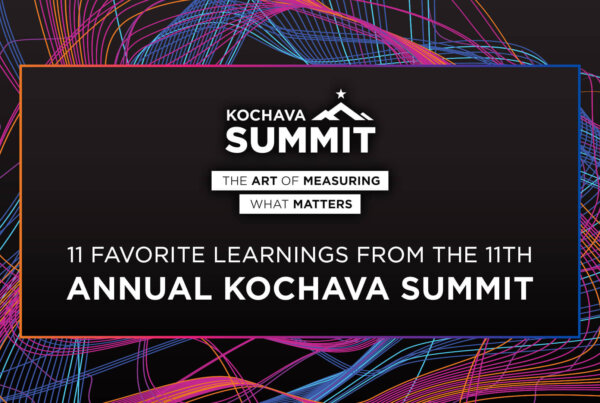When Kochava first started, I was amazed by the potential our tech stack represented. To me, the Kochava system was the centerpiece that 1) collected data that marketers use to track activities and 2) syndicated signals that enabled decisions at scale.
As we’ve grown, this potential has been realized. As our director of product engineering outlined in a previous post (The Business of Real Time), Kochava has 65 ingestion points where we collect data from our SDK, all of which are processed in real time (with a strict FIFO approach), and then sends signals based on rules that our customers configure. We call this end-to-end system Kochava Signals. It doesn’t cost extra, it isn’t an add-on, it’s one of the capabilities customers get when they use Kochava.
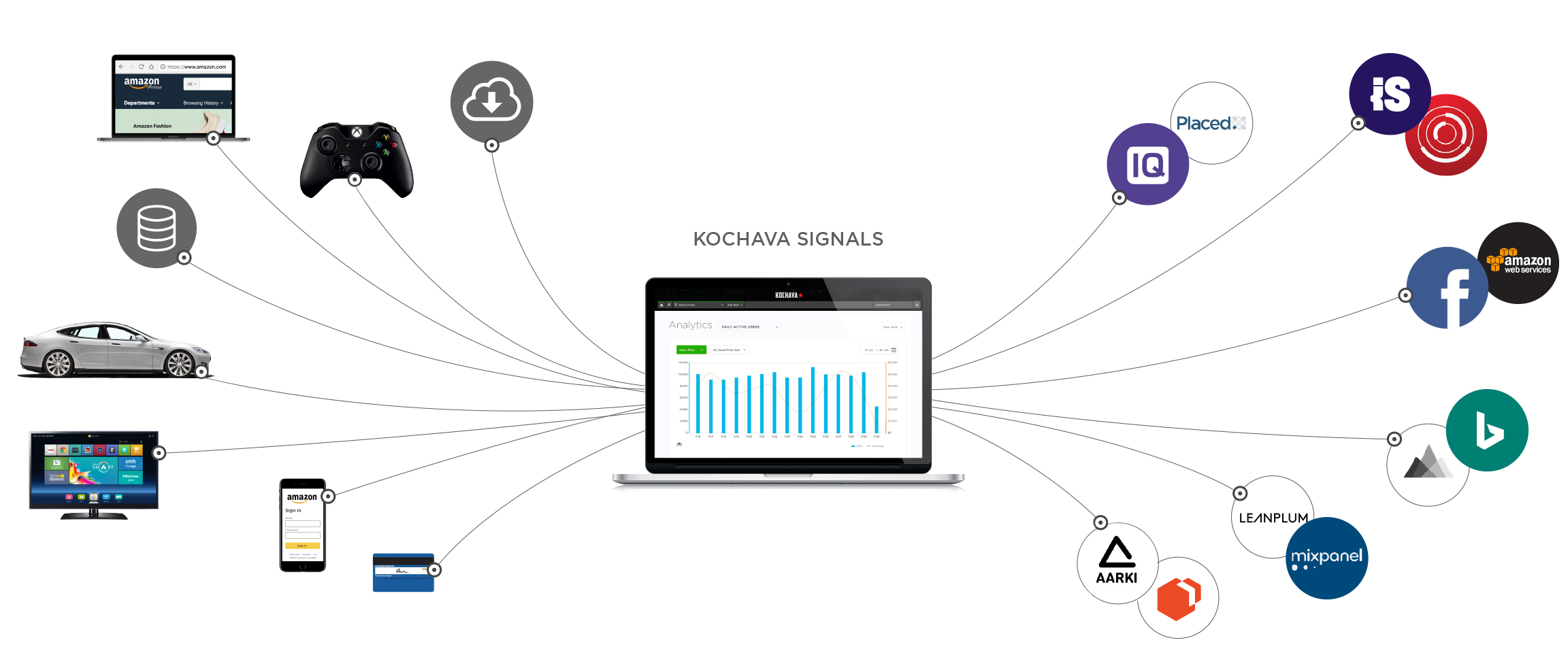
This may sound simple, but it’s actually revolutionary. This means that the Kochava SDK is not simply an attribution SDK, Kochava also serves as a data management system—but with no additional cost.
I know what you’re thinking: How is the attribution SDK doubling as a data management SDK? To answer that, let’s look at what a data management SDK needs to do to be successful:
- Support a wide array of platforms
- Support data collection across a myriad of disciplines
- Provide signalling capabilities for data syndication across countless end-points
Yep, we’ve got that.
Cross-Platform Support
Let’s start with our footprint. The Kochava SDK can collect data from any of the following, plus a flexible server-to-server model that makes any source accessible.
Traditional App Platforms
![]()


App Engine Platforms



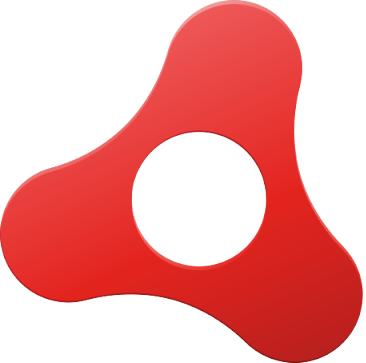
Set Top Boxes
![]()
![]()
![]()
Smart TVs
![]()
![]()
![]()
![]()
Gaming Consoles
![]()
![]()
![]()
Streaming Sticks
![]()
![]()
![]()
Data Collection
Next, let’s look at instrumentation. The Kochava SDK has all of the things customers want including:
- Device Snapshot Collection: Kochava gathers a full snapshot of information about the device on install and at each app (or OS) update.
- Session Data Collection: Each launch or foreground activity is optionally tracked and collected. This is for each session and includes duration.
- Identity Mapping: Kochava optionally collects identity graph data for customers’ internal customer identifiers mapped to one or more devices through our IdentityLink® feature.
- Unique Token Collection: For services like push and in-app messaging, Kochava optionally collects push tokens.
- Location Collection: Kochava optionally tracks location data via precision GPS and iBeacon detection with low overhead.
- Game Center collection: For services like Game Center, Kochava optionally collects Game Center identifiers.
- Ambient Analytics: Kochava tracks additional ambient metrics such as accelerometer movement, brightness indicator status, altimeter, and other metrics that indicate movement or indoor/outdoor position
- Event Analytics: Kochava optionally tracks any event instrumented by the customer. Not only do we track events (and attach them to the install object in our object model), we track event payloads where an arbitrary JSON payload can be sent with each event.
What’s more important is that all of the above instrumentation is configurable on the server. Want to stop measuring ambient analytics? No problem. Want to re-activate an event that you previously disabled? No problem. There is no app update or re-compilation. This is the power of building a properly built technology platform.
So, yes. Kochava can gather anything a customer wants to instrument and we make it configurable.
Data Syndication
Finally, rules and syndication. Kochava customers enjoy access to over 3,000 partner integrations natively built into our platform. Each integration is badged based on supported capabilities. Integrations are largely media related, but we also have non-media integrations like Push, Analytics, DMPs, and many others.
Beyond breadth and depth of integration, our systems have UI-driven command-and-control for each integration.
Want to see what you’re syndicating to a partner, and find out how fast their response times are in absorbing the data? We have that.
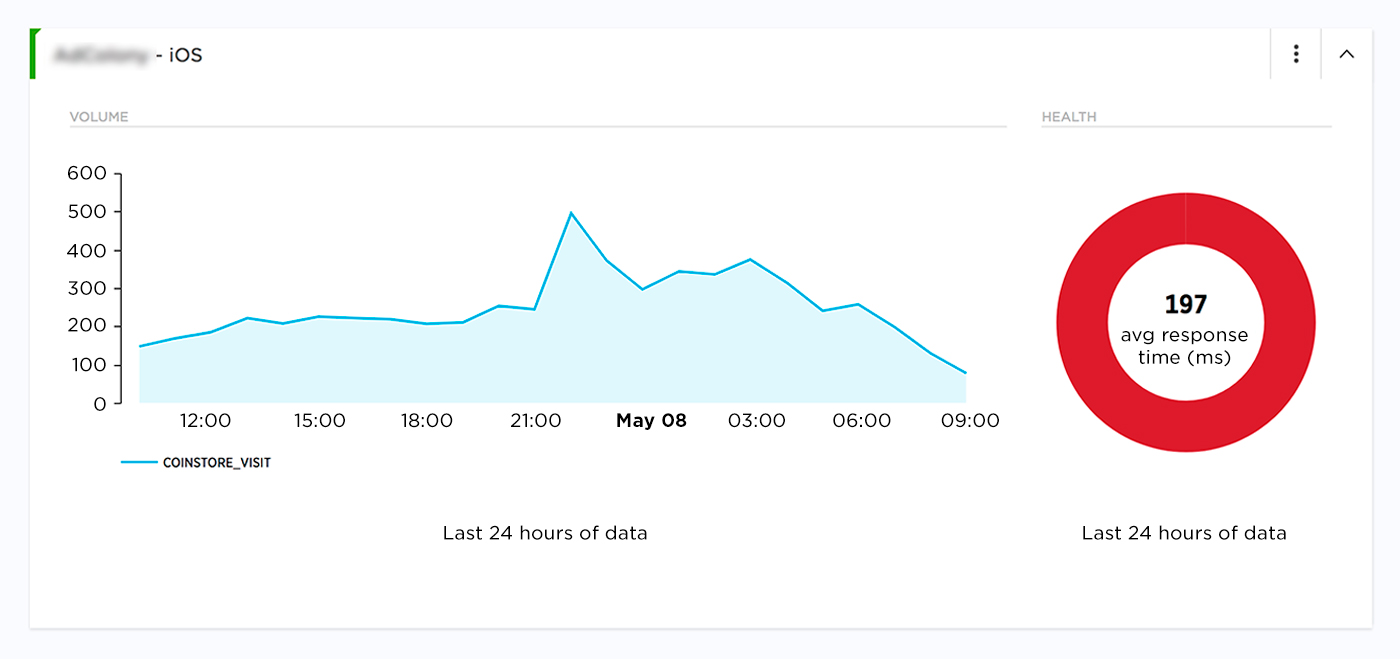
Want to see the most recent signals sent to a partner? We can show you that.
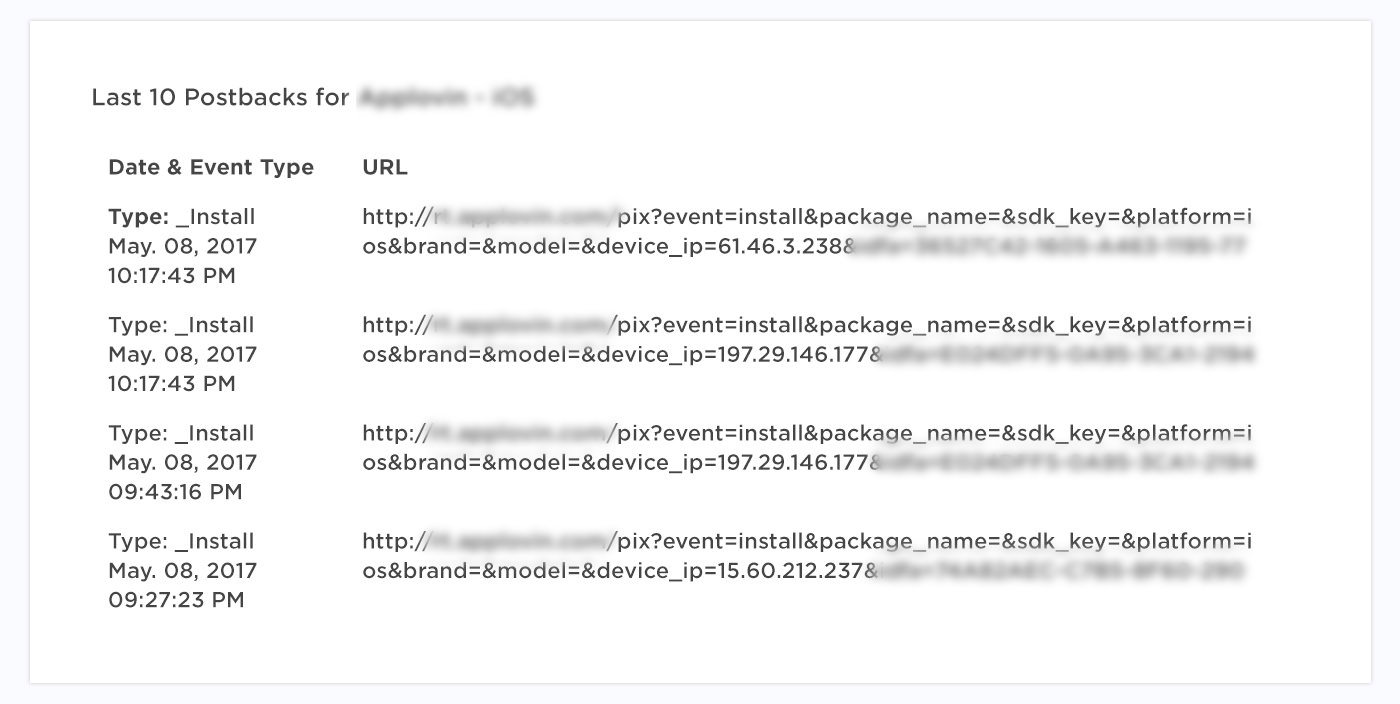
Want to collect cost and revenue data from a particular partner? That’s based on a badge and is available directly in our UI.
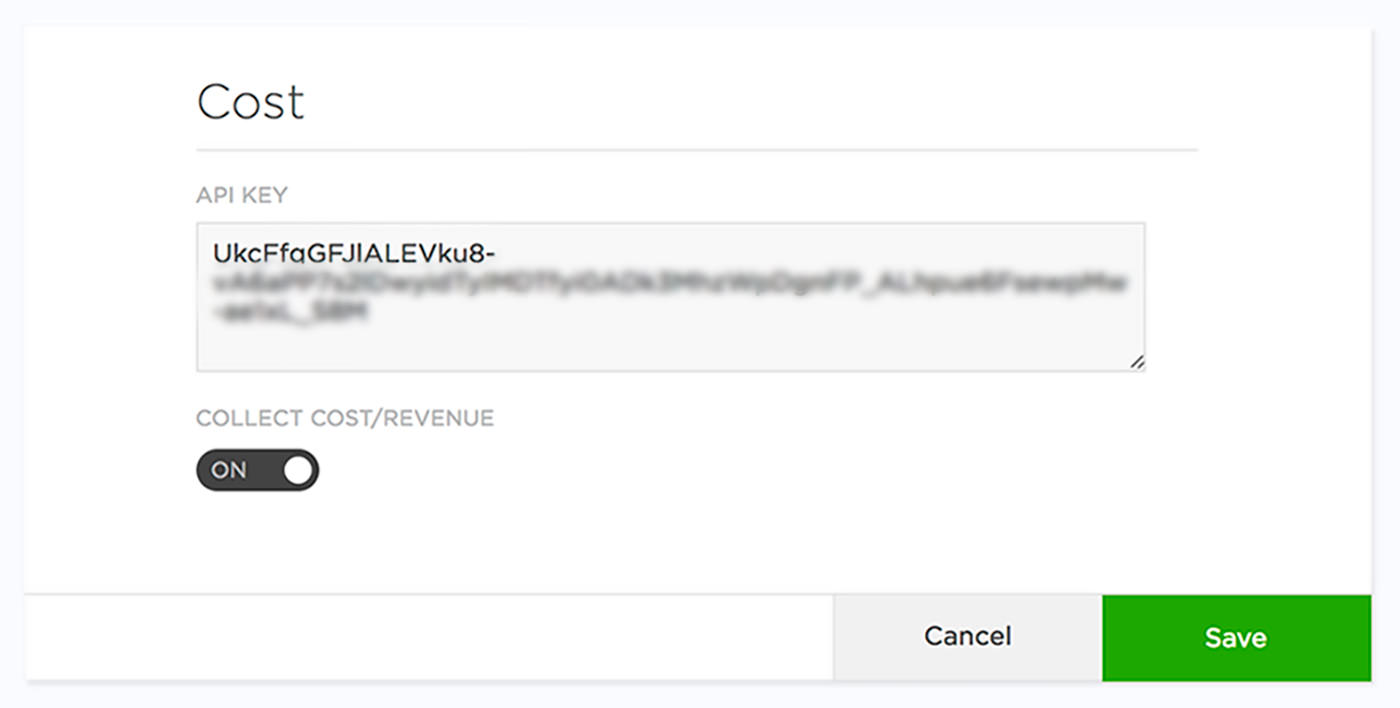
Want to be in control of what you send to each partner? We can do that. Unlike other data management platforms which have a “send all or send nothing” approach, Kochava puts you in control.
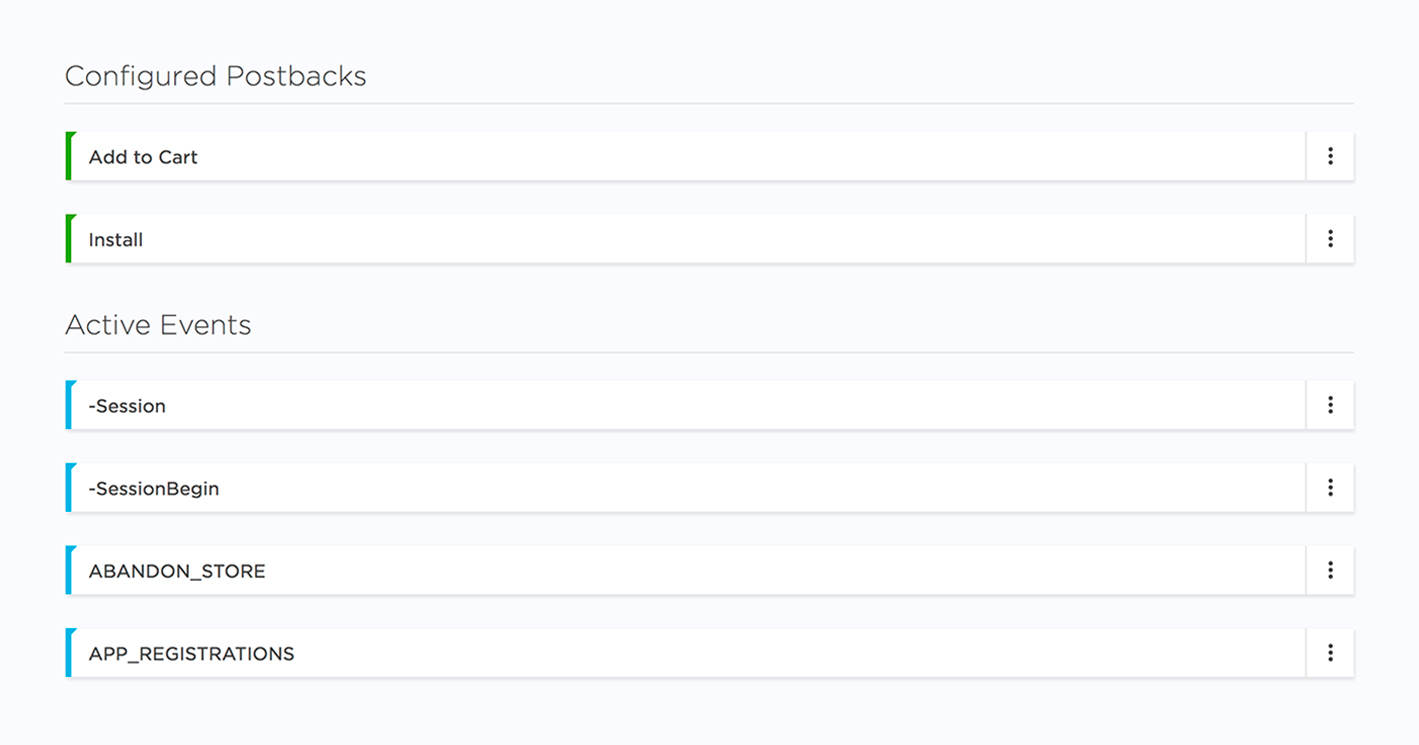
Kochava has an easy user interface to configure each connection, presenting human readable controls based on the integration partner capabilities. Kochava can even direct how many attempts to send signals when the partner is indicating failures in their receipt.
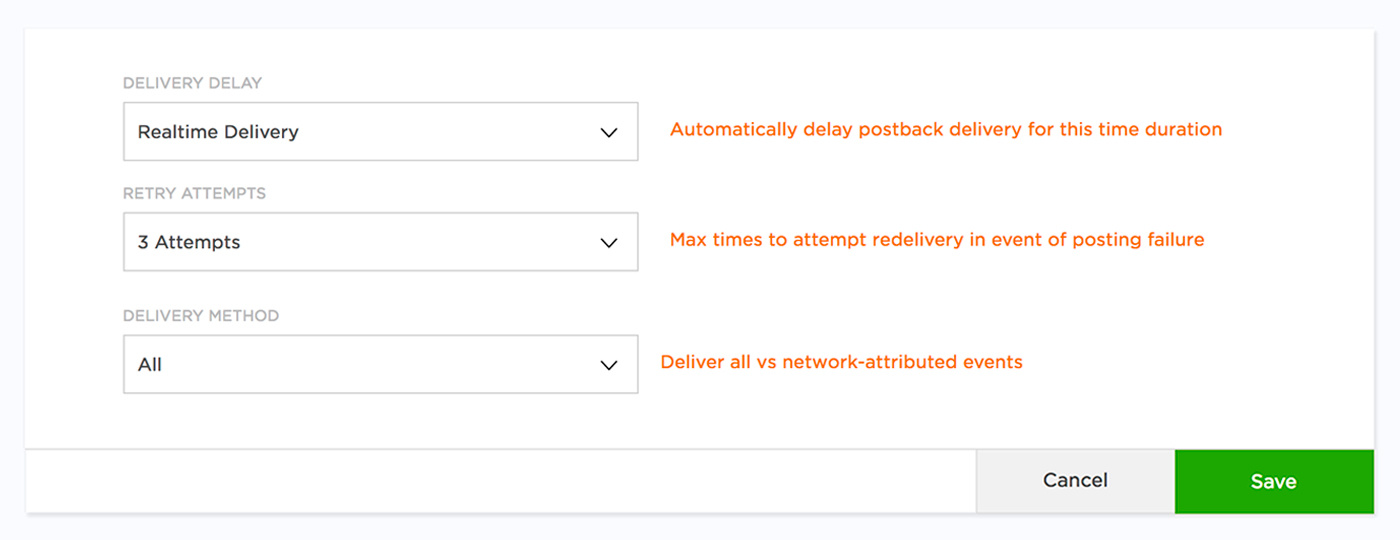
Segmentation and Activation
Beyond the the framework for data management, Kochava provides advanced analytics and activation for any class of data ingested through the platform. This means that data can be processed and understood in the context of segmentation and cohort analysis, and when appropriate, also activated.
In summary, Kochava provides all of the capabilities of a data management SDK without the additional cost of a data management provider, or the added overhead of another SDK. Further, because of the high standard for real-time data ingestion and processing that attribution demands, Kochava has the right infrastructure, processes and service to make data management simple and scalable.
About the Author
 Charles Manning is the founder and CEO of Kochava, the leading mobile attribution analytics platform serving tier-one advertisers worldwide. For nearly 20 years, he has been creating technologies that use data for system optimization, ranging from business service management (BSM) to information technology (IT) to attribution analytics. Charles began his career at Oracle and later held executive and C-Level positions at M-Code, Managed Objects, and PLAYXPERT.
Charles Manning is the founder and CEO of Kochava, the leading mobile attribution analytics platform serving tier-one advertisers worldwide. For nearly 20 years, he has been creating technologies that use data for system optimization, ranging from business service management (BSM) to information technology (IT) to attribution analytics. Charles began his career at Oracle and later held executive and C-Level positions at M-Code, Managed Objects, and PLAYXPERT.



